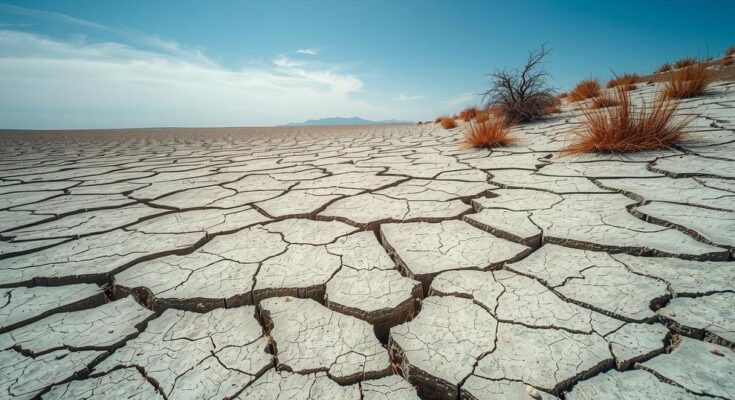The Trinidad and Tobago Meteorological Service announces the start of the 2025 Dry Season, indicating a notable reduction in rainfall and changes in atmospheric conditions. This season is expected to begin wetter than usual, with temperatures rising above normal. Outdoor fire permits are required, or individuals may face severe penalties.
The Trinidad and Tobago Meteorological Service has officially announced the commencement of the 2025 Dry Season. Notably, they have observed a significant decline in rainfall frequency and changes in atmospheric conditions, including the strengthening of the North Atlantic Sub-Tropical High Pressure cell, enhanced Trade-wind inversion, and upper-level westerly winds. The Inter-Tropical Convergence Zone (ITCZ) is now positioned at its southernmost point across the tropical Atlantic.
The Met Office reported that the atmosphere has transitioned into a drier state, completing a gradual shift from the wet phase to the Dry Season. Initial climatic patterns experienced delays due to a weak North Atlantic Sub-Tropical Pressure cell and strong upper-level winds. However, recent weeks have seen a marked reduction in rain, attributed to dry season features, including passing mid-latitude frontal systems.
Traditionally, the Dry Season is characterized by lower moisture levels, heightened atmospheric stability, and fewer rainfall events, resulting in warm days and cool nights. The primary wind direction shifts to easterlies and northeasterlies. Although rain is less common, some occurrences may still happen due to dry season features rather than typical wet season systems.
The present weak La Niña phenomenon in the central tropical Pacific Ocean is expected to generate increased rainfall as the Dry Season progresses, particularly from January to March. The National Climate Outlook Forum anticipates a wetter-than-usual start to the Dry Season, but overall temperatures—both day and night—are expected to exceed normal levels across both islands, with urban areas experiencing the highest temperatures.
Furthermore, during the Dry Season, outdoor fires require permits. The absence of a permit could result in severe penalties, including fines of up to $20,000 or six months’ imprisonment if violations occur.
The announcement marks the official transition from the Wet Season to the Dry Season in Trinidad and Tobago, a significant climatic change that affects weather patterns in the region. The Met Office’s criteria for defining the Dry Season include various synoptic features and atmospheric conditions that signal a reduction in rainfall. Given the region’s vulnerability to dry conditions, understanding the implications is critical for agriculture, water supply management, and environmental safety.
In conclusion, the Trinidad and Tobago Meteorological Service has declared the onset of the 2025 Dry Season, emphasizing notable weather pattern changes and a potential wet start. While temperatures are projected to be above average and outdoor fire regulations tightened, the season will still experience sporadic rainfall influenced by specific climatic systems. Overall, preparedness for these shifts is essential for residents and relevant sectors in the islands.
Original Source: tt.loopnews.com




